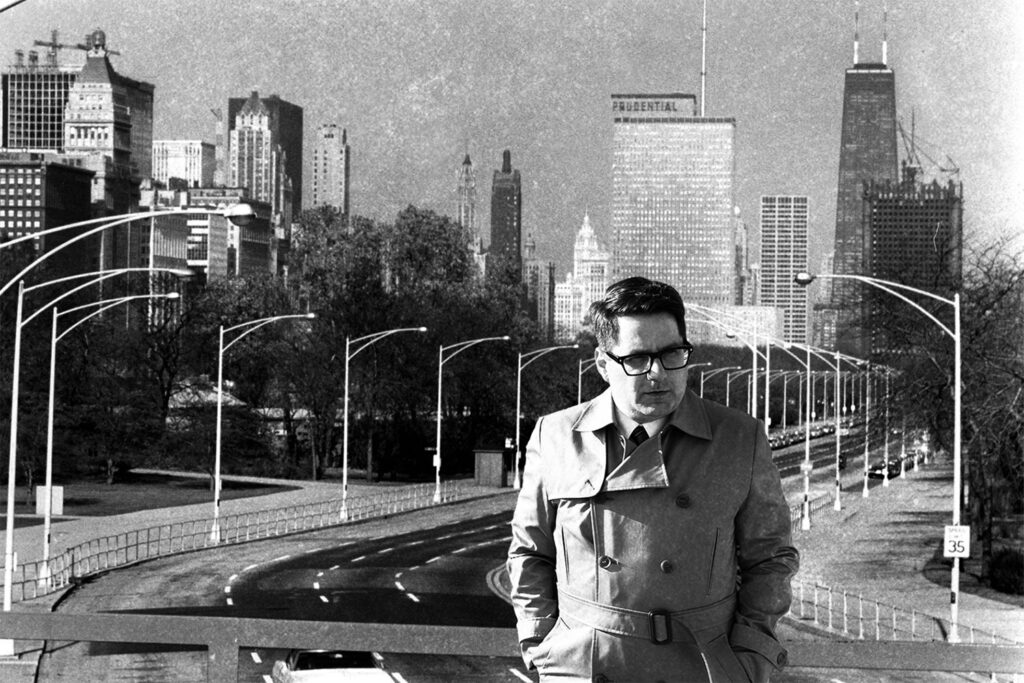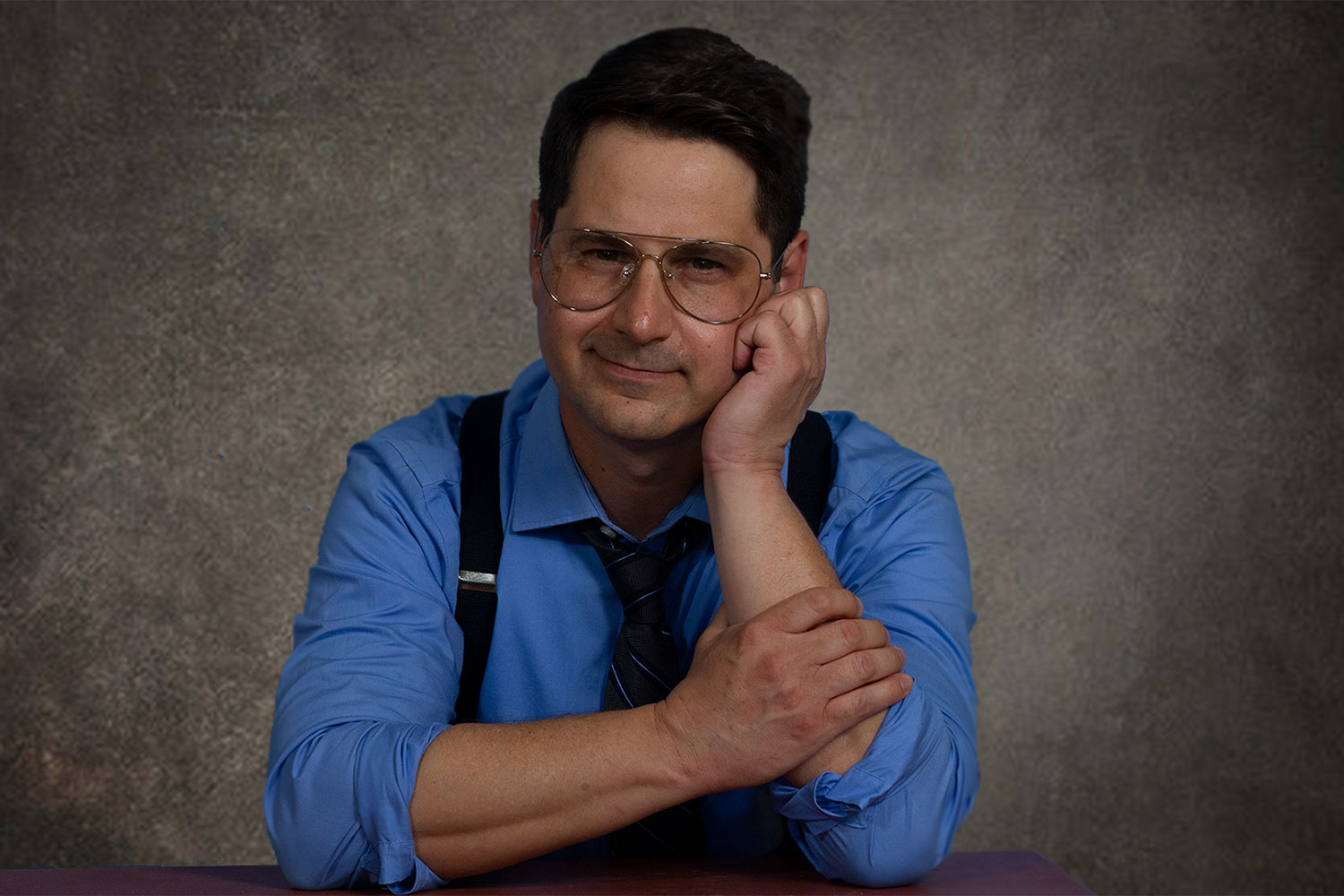More than 27 years since he died at the age of 64, legendary columnist Mike Royko still looms over Chicago. While there is no statue of Royko in Chicago (yet), barely a week goes by where he isn’t mentioned in the media, be it in his hometown or some far away land. With an upcoming play, exhibit, and class about his life and work, this is shaping up to be a summer of Royko in Chicago.
The writer famously grew up in an apartment above a Milwaukee Avenue tavern, and he would write more than 7,500 columns for three Chicago newspapers — the Chicago Daily News, Chicago Sun-Times and Chicago Tribune. His columns focused on exposing incompetence and corruption in politics, his beloved and cursed Chicago Cubs, and the travails of the everyday working stiff. He also penned the book Boss: Richard J. Daley of Chicago in 1971 and won a Pulitzer Prize in 1972 for commentary while still at the Daily News.
Now, almost three decades after his death, the city has a slew of Royko events on offer. An exhibit called Chicago Style: Mike Royko and Windy City Journalism is set to run June 20 through September 28 at the Newberry Library. Also at the Newberry, professor Bill Savage will teach a class, “Mike Royko’s Chicago,” June 26 through July 24 that explores the city through Royko’s writing. And a one-man show, Royko: The Toughest Man in Chicago, will be performed at the Chopin Theatre, from September 6 to 29.
The writer and performer of Royko, 45-year-old Mitchell Bisschop, plays the eponymous character and will stage what he describes as a one-man show blending video and live action, all based on several of Royko’s columns. Bisschop, who grew up in Barrington but didn’t start reading Royko until after the writer’s death, instantly fell in love with his courageous style and knew he would be a great subject for a show.
Bisschop first performed Royko for a week in Los Angeles in 2022 and did a one-night performance in New York in 2023 after tweaking it a bit. Now, he is reshaping it again and bringing it to Chicago, which he said is both stressful and a pinnacle for the show.
Bisschop spoke to Chicago from Los Angeles, where he’s lived for the last 12 years.
Did you grow up reading Royko?
No, I didn’t. My parents didn’t have the Chicago Tribune in the house because they didn’t like it, so I came to Royko late. I knew the name and knew he was a famous writer and remembered when he died. But it was only a few years ago after talking to some friends about old-school guys like Bill Veeck and Studs Terkel that Royko came up. I ended up going down that rabbit hole and was like, Holy crap, this guy is amazing.
When did you start thinking of writing a play about Royko?
In January 2021 I saw C-Span airing a special about one of the compilations of his columns [One More Time: The Best of Mike Royko]. Then, I started pulling stuff from the internet about him and ordered a couple of the column compilation books, as well as Boss.
What was the impetus, or when did the light bulb go off about doing a play about Royko?
It’s sort of what I do creatively. I found him fascinating as a person, his voice. He was someone whose work exists and is waiting to be discovered. I hate to say it that way because there are plenty of people who remember him.
It was recently the 27th anniversary of his death [April 29], so there’s a lot of people who weren’t around when he was writing.
Yes, and there are a lot of people who were like me, people who heard his name but really didn’t know much about him.
It’s tough because you’re asking someone to absorb a medium [newspapers] that really doesn’t exist (in the same way) anymore. A lot of people just read the headlines but he was like a meal, every day. People looked forward to consuming and seeing what he had to say every day.
You’ll be encompassing columns from all three papers that he worked for. Will you be doing costume changes for different eras?
Yes, but not to the extent that we’re going to slow the show down. It’s not a Mike Royko fashion show but we’ll move from one era to another.
Royko wrote more than 7,500 columns. How did you decide what to focus on?
First of all, I don’t think I’ve read all of them. The hardest thing was not pulling the columns that fit the theme. Also, if it was a popular column, it usually meant more people connected with it, so those went in. So, for people who love him, they’re going to want to see me play the hits. But on top of that, I want there to be a lot of discovery because the idea is that they should leave the show and go look him up, or tell a story about him to me after the show.

How many columns are you working from?
That’s tricky. I can’t give a precise answer because the script is changing. I’ll read something, try to throw it in the show or pull a piece of it and put it in. It’s still being worked around.
Judy and Sam Royko (Mike’s widow and youngest son) told me they are excited about the show. How important was it to you personally to get their blessing?
I think it’s pretty important because there are a lot of people who feel an ownership of Mike Royko and it helps the production. It also helps people who are big fans to know that it’s in good hands and someone is checking the work.
For me, it would have felt almost like a betrayal if Judy wasn’t excited or wasn’t on board.
It’s not like you’re running the script by Judy, correct?
No, but there are things that I am using her as a resource for so that I can do things right. In our meeting at the Billy Goat there was something that I wanted to include and I had the timing of it wrong and instantly she corrected me. This is why we talk about it.
I’m not saying anything salacious. I want to get the characterization right and I want to get the things that are related to real life correct as well.
I’m sure it helps your stress level knowing they are rooting for you, correct?
Obviously. It just helps to have everyone on board. This doesn’t have to be an end-all, be-all Mike Royko show and certainly doesn’t have to be the last one people produce about him, but it’s the one I’m doing. I feel it’s best to have everyone on board, understanding what’s going on.
Is there an added pressure to performing it in Chicago?
Oh dude, absolutely. I have to perform it in front of people like you who are huge Royko fans. If I do something wrong, you’re going to pick it apart.
The bigger it gets, if it gets big, people are going to want to scrutinize it. It’s an appreciation piece but I’m also trying to create something where people can reminisce about him. It’s a delicate balance.
When you wrote it, was the bulk of your research focused on his columns?
Yes. Well, the very first version of the show had Studs Terkel in it and he was kind of the narrator, played by me. And then I’d do Frank Sinatra, but I felt the show should focus just on Royko so I cut those for the second show [New York] and it was just Mike Royko, the columns, parts of Boss, trying to tell a story through his words by clipping stuff but also giving a nice overview of his work by doing columns live on stage.
Is having the show well-received in Chicago the ultimate goal?
A lot of people who do one-man shows, the ultimate goal is to bring it to Edinburgh [for the annual Edinburgh Fringe Festival]. There’s people who rep people trying to get out there and helping to raise money to do so. I said I’m not raising money to go to Edinburgh when what I want to do is bring it to Chicago. I talked to a lot of theater people in New York and LA and they all said they’ve never been able to get a show to work in Chicago. But to me, it’s not like they were doing shows about Chicago like I am. To me, we’re hitting the ultimate goal right now, having the show run in Chicago. Past that, I don’t know. Now my concern is getting as many people as I can to see it because I think it’s going to be great, and it’s what a lot of people need at this point.



